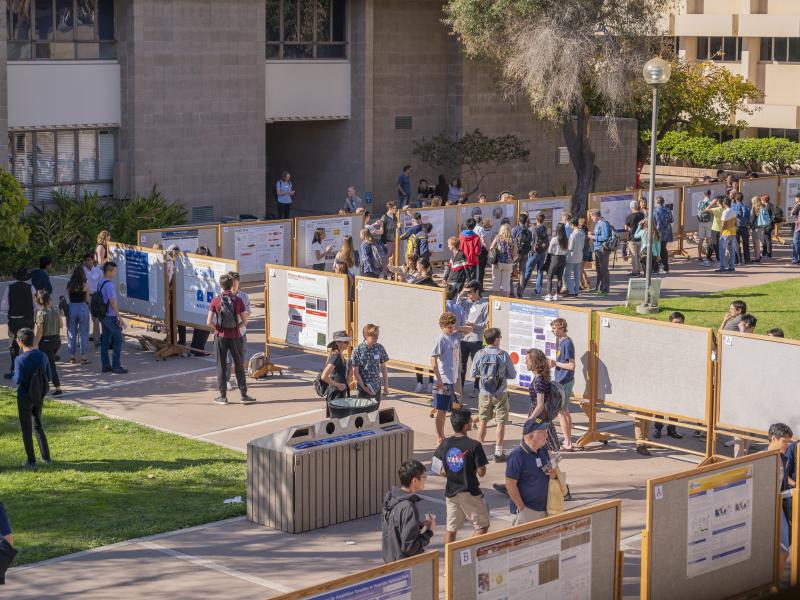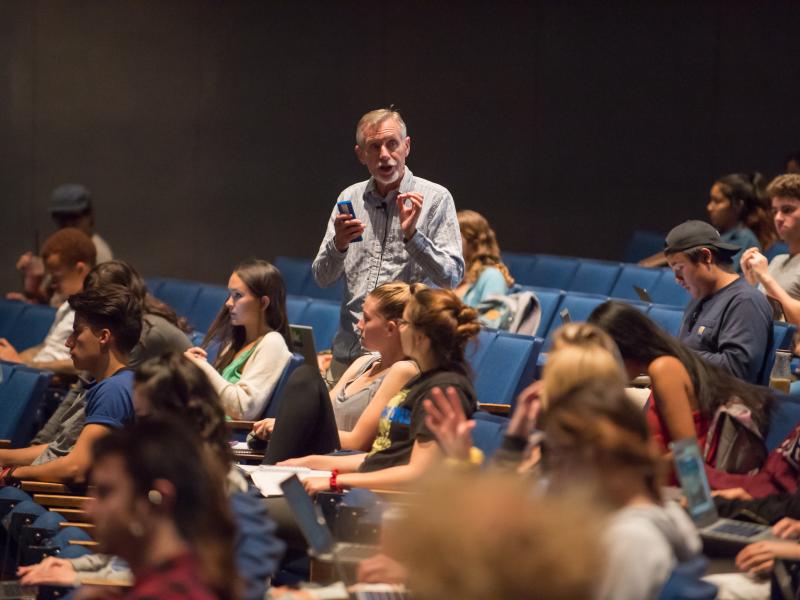To make diversity matter in the classroom, educators can adopt inclusive teaching, which is based on principles and practices that encourage active participation, implement different learning styles, and maximize accessibility. Knowing who your students are (their identities, experiences and interests), implementing Universal Design for Learning, and building a classroom community all may help foster inclusive teaching in ways that are relevant to your courses.

The increasingly dynamic student body, academic curricula, and accessible resources at UCSB is a result of the ongoing advocacy for diversity by members of the UCSB community. These efforts help to shape how UCSB defines the principles, practices, and commitments we share towards creating and maintaining a diverse campus.
While strides in diversity strengthen the academic impact of the campus, benefiting from our diversity means going beyond just having it. Rather, benefiting from diversity in meaningful and equitable ways requires intentional and ongoing work as a campus to continue welcoming and supporting diversity. Providing high quality learning remains central to this endeavor, and instructors are at the forefront of shaping student learning experiences in ways that make the diversity at UCSB matter in the classroom.
Teaching and learning among a diverse student body can present challenges such as accommodating different learning styles, connecting with students from different cultural and linguistic backgrounds, and making course content accessible and relevant to the lives and interests of each student. However, diversity in the classroom offers opportunities to expand dialogues, discover new ways of knowing, and provide space to groups who are routinely underrepresented.

Welcoming diversity in your classroom
Use the ideas below to integrate diversity into your course design and teaching practices.
When possible and relevant, include scholars from different gender, national, linguistic, ethnoracial, religious, theoretical, and philosophical backgrounds to present a more well-rounded version of the conversations about your course topics. Inequitable citation practices on syllabi and published articles have been shown to devalue the academic contributions of marginalized groups.
Keep accessibility in mind as you plan your course. Ensure your slides and supplemental materials are accessible to students who have physical and learning disabilities or mental health challenges. Consider the potential barriers of requiring costly course materials (e.g. books, software, etc.). Try eliminating language, assessments or activities rooted in cultural assumptions of college students being single young adults with few family responsibilities. This can displace non-traditional students such as transfer students, parents, students from low income families, military students, or students older than 25.
Researching out to different students about your course offerings can be welcoming. Try sending course descriptions to the multicultural center, student-led organizations for non-traditional students, and administrators from departments of different disciplines.
Not every student views their identity as a student in equal ways. To some, being a student is central to their lives. To others, being a student is peripheral to the various other identities they hold within their families and communities. There are also different cultural perspectives when it comes to becoming educated and what that education should do for you. While some people are focused on education as an individual experience and accomplishment, others may view their education as primarily an accomplishment for their community and will be used to serve their communities. Therefore, try to consider the lives and commitments students have outside of the university as you design your course activities, goals, and assessments.
